en ja es pt
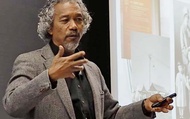
identity
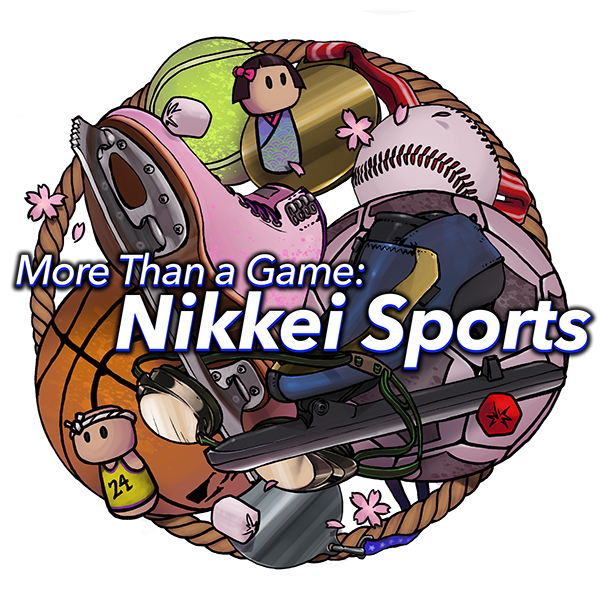
Like music, sports transcend language and cultural barriers. Anyone can enjoy them, whether as a participant or a fan. Whether it is an organized team event or an individual activity such as jogging or fishing, sports provide an outlet from our daily lives. More than any other modern activity, team sports bring us together as communities in celebration (or misery).
For the ninth edition of Nikkei Chronicles, Discover Nikkei solicited stories related to Nikkei sports from June to October of 2020. Voting closed on November 30, 2020. We received 31 stories (19 English; 6 Japanese; 7 Spanish; and 1 Portuguese), with a few submitted in multiple languages.
Thank you very much to everyone who submitted their More Than a Game: Nikkei Sports stories!
We asked our editorial committee to choose their favorites stories. Our Nima-kai community also voted for the stories they enjoyed. Here are their selections!
English | Japanese | Spanish | Portuguese
English:
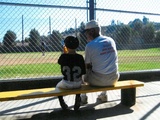
Why Coach Sports? Bob Kodama’s Legacy Coaching Youth Sports
By Michael Kodama
Comment from Brian Niiya
Michael Kodama’s moving tribute to his father, Bob Seiko Kodama, and to the role sports and coaching played in their lives captures much about the importance of sports in general as well as in the Japanese American community. Bob learns to play baseball while incarcerated at Minidoka as a child, and coaching baseball and other sports becomes a core of the father-son relationship that even continues on to the next generation. Kodama’s story highlights the best aspects of sports and coaching and the role it has played in the lives of generations of young people, while also noting the reasons his father and others choose to serve as coaches. I hope his story inspires others to take up this noble calling.
Japanese:
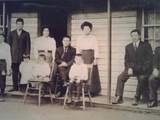
Family History of Kenichi Doi, Vancouver Asahi pitcher in 1926
By Yobun Shima
Comment from Yusuke Tanaka
As I was reading Yobun Shima’s “Family History of Kenichi Doi, Vancouver Asahi pitcher,” the past 30 years of my life with the Asahi flashed through my mind. This is a very valuable piece of family history. It’s a story of the Asahi’s history from 1914 to 1941, with bits and pieces of information collected through time. Who would have thought that their legacy would continue to expand its wings more than 100 years after the team’s birth?
As an editor, though, I should probably read the piece with an objective eye, but I don’t think that I ever spent a day without having the name “Asahi” cross my mind in the past 22 years of my life as an editor at Nikkei Voice since they hired me in 1989 and in the following 9 years after I became a freelancer. This is because Asahi baseball can be found in just about any place in Nikkei history, somehow always connected to its narrative.
In Yobun Shima’s story, he writes, “At age 12, Kenichi had to get up very early in the morning to take care of the cows at Kishimoto Dairy Farm, located near Royston, before marching off to school.” And according to Tokugi Suyama, who’s knowledgeable about the history of Cumberland, the farm owner Kishimoto ran a farm in Ontario, too, as he resettled there after being forced to move out. Those with the spirit of entrepreneurship had the power to quickly get back on their feet, even after losing their property.
There were some great autobiographies written by talented athletes, but since they have been published elsewhere, I chose Yobun Shima’s essay particularly for the reason that it synced with me in my career.
Spanish:
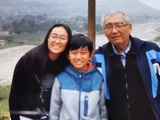
60th Anniversary: Close to the Heart
By Luis Iguchi Iguchi
Comment from Mario Kiyohara Ramos
Through his story, he passes on to the following generations (and all of his readers) not only the sweetness and the solidarity of the humble origins of La Unión Stadium (A.E.L.U. — Asociación Estadio La Unión) but also 60 years of continued growth and modernization of the facilities. La Unión Stadium has been a constant companion during the second half of the history of the Japanese-Peruvian community, which celebrated its 120th anniversary last year. A story of growth and an important presence in Peruvian society, without losing its core values of shared and almost anonymous work toward a common objective. In these lines, the author asks us, in a subtle way, to pass on to our children the ideals and values that originally motivated every community member to contribute funds, pick up a rocks, or lay bricks to build a dream that fills our community with pride and satisfaction today.
Portuguese:
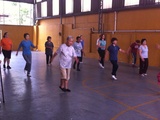
Our Daily Radio Taiso Workouts
By Edna Hiromi Ogihara Cardoso
Comment from Aldo Watao Shiguti
Edna Hiromi Ogihara Cardoso regales us with a delicious essay about the practice of Radio Taiso workouts, demonstrating in subtle fashion and clear prose the benefits of this activity, introduced in 1978 on the occasion of the celebrations of the 70th Anniversary of Japanese Immigration in Brazil, and which over the years has attracted countless enthusiasts, including those of non-Japanese ancestry. The author manages to “transport” the reader to the workout site—in this case, a sports court—while making the story’s characters feel close to us, as if we’d known them for some time; like, for instance, in the exchanges among the regulars and the peculiarities of some of them.
In an objective manner, the author conveys information about the benefits of the Radio Taiso exercises, particularly the resulting social interactions, which have been temporarily rattled by the new coronavirus pandemic. That lack, one should add, is somewhat mitigated by conversations over the phone or via Whatsapp. Anyway, as the author makes clear, happy moments to be cherished.
We have closed submissions for this series, but you can still share your story on Discover Nikkei. Please check our Journal submission guidelines to share your story!
We're deeply grateful for the participation of our Editorial Committee:
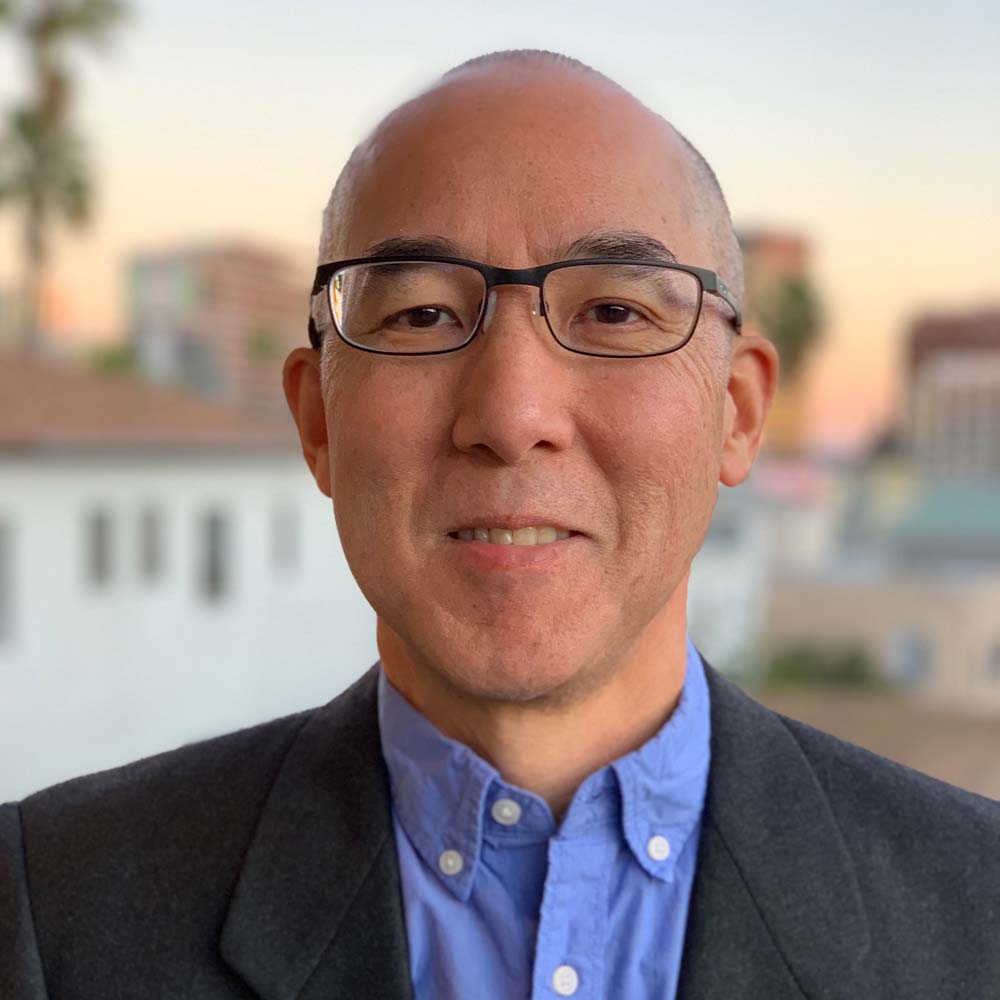 Brian Niiya is a public historian specializing in Japanese American history. Currently the content director for Densho and editor of the online Densho Encyclopedia, he has also held various positions with the UCLA Asian American Studies Center, the Japanese American National Museum, and the Japanese Cultural Center of Hawai‘i that have involved managing collections, curating exhibitions, and developing public programs, and producing videos, books, and websites. His writings have been published in a wide range of academic, popular, and web-based publications, and he is frequently asked to give presentations or interviews on the forced removal and incarceration of Japanese Americans during World War II. A “Spoiled Sansei” born and raised in Los Angeles to Nisei parents from Hawai‘i, he lived in Hawai‘i for over 20 years before returning to Los Angeles in 2017 where he is currently based.
Brian Niiya is a public historian specializing in Japanese American history. Currently the content director for Densho and editor of the online Densho Encyclopedia, he has also held various positions with the UCLA Asian American Studies Center, the Japanese American National Museum, and the Japanese Cultural Center of Hawai‘i that have involved managing collections, curating exhibitions, and developing public programs, and producing videos, books, and websites. His writings have been published in a wide range of academic, popular, and web-based publications, and he is frequently asked to give presentations or interviews on the forced removal and incarceration of Japanese Americans during World War II. A “Spoiled Sansei” born and raised in Los Angeles to Nisei parents from Hawai‘i, he lived in Hawai‘i for over 20 years before returning to Los Angeles in 2017 where he is currently based.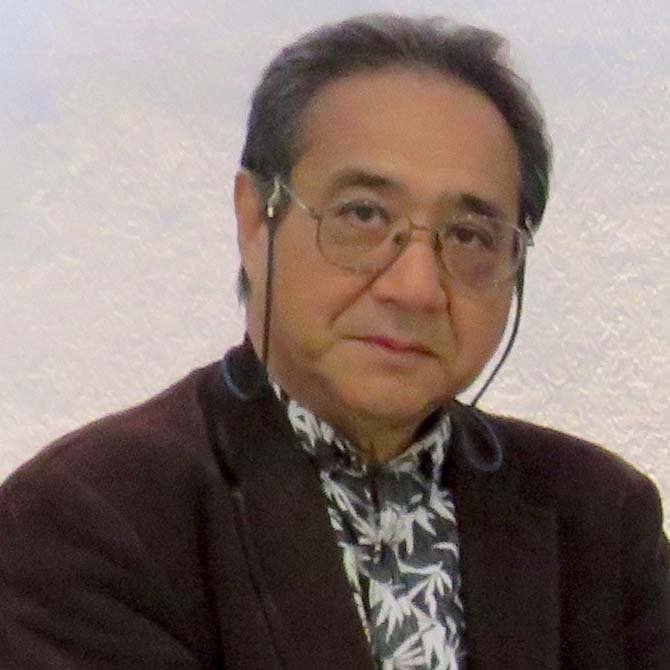 Yusuke Tanaka immigrated to Canada in 1986. He has a BA in Sociology from Waseda University and is a freelance writer for the Japanese media as well as a regular columnist for Vancouver-based JCCA Bulletin and Fraser Journal since 2012. He is the former Japanese editor of the Nikkei Voice (1989-2012), co-founder of the Katari Japanese Storytellers since 1994, and lecturer on Nikkei history at various universities in Japan. His translation Horonigai Shori, the Japanese edition of Bittersweet Passage by Maryka Omatsu, was awarded The 4th Canadian Prime Minister Award for Publishing in 1993.
Yusuke Tanaka immigrated to Canada in 1986. He has a BA in Sociology from Waseda University and is a freelance writer for the Japanese media as well as a regular columnist for Vancouver-based JCCA Bulletin and Fraser Journal since 2012. He is the former Japanese editor of the Nikkei Voice (1989-2012), co-founder of the Katari Japanese Storytellers since 1994, and lecturer on Nikkei history at various universities in Japan. His translation Horonigai Shori, the Japanese edition of Bittersweet Passage by Maryka Omatsu, was awarded The 4th Canadian Prime Minister Award for Publishing in 1993.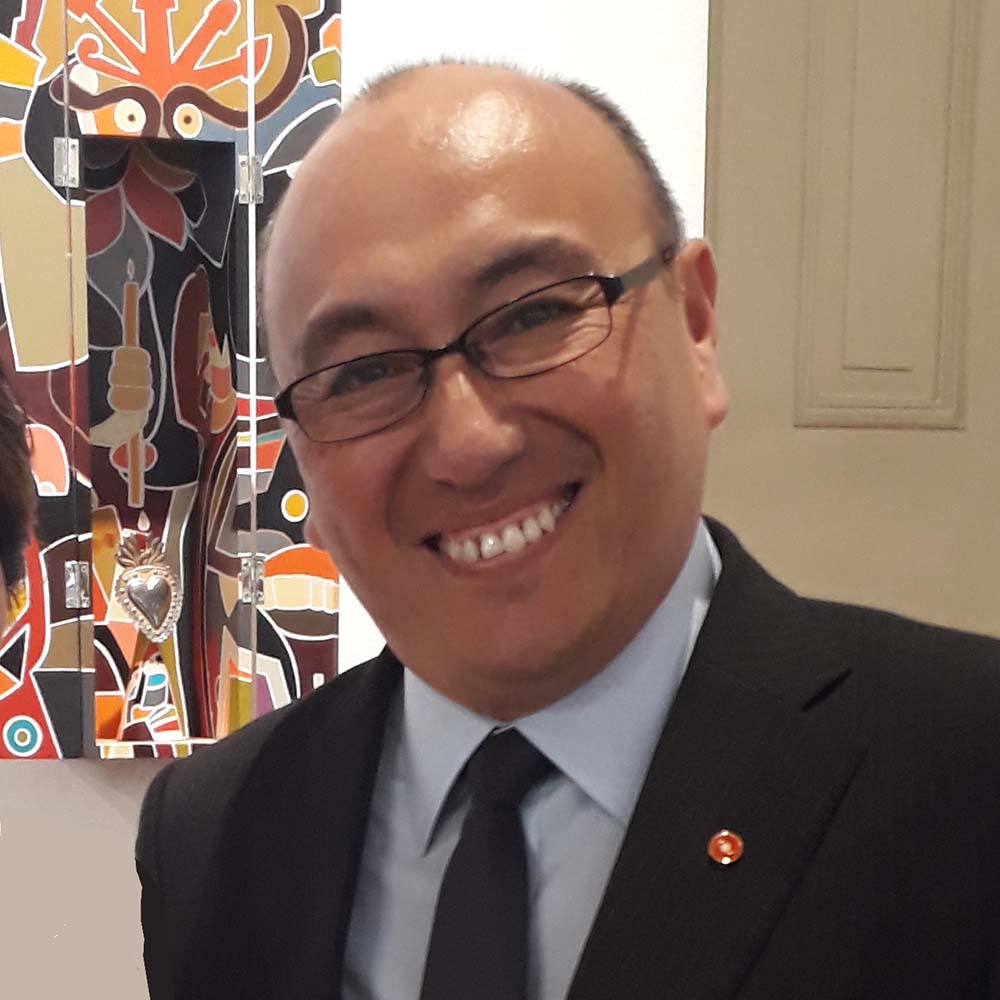 Mario Kiyohara Ramos is a Sansei living in Lima, Peru and is the Director of Board Communication & Marketing of the Japanese Peruvian Association (APJ). He lived in Tokyo, Japan for 22 years and felt he learned much of how to contribute to making this world a better place, while seeing areas that Japanese society can improve on by learning from others as well.
Mario Kiyohara Ramos is a Sansei living in Lima, Peru and is the Director of Board Communication & Marketing of the Japanese Peruvian Association (APJ). He lived in Tokyo, Japan for 22 years and felt he learned much of how to contribute to making this world a better place, while seeing areas that Japanese society can improve on by learning from others as well.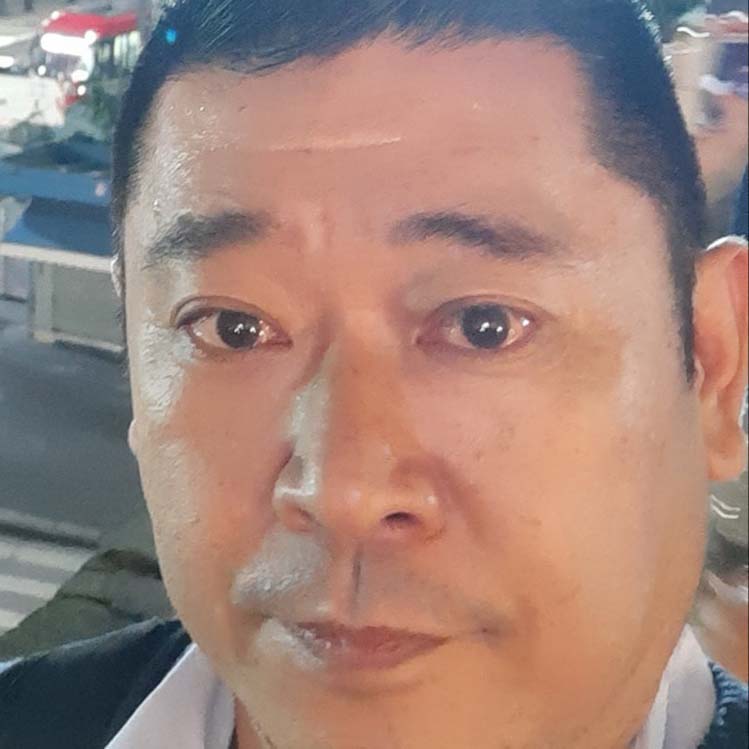 Aldo Watao Shiguti was born in Rosana, in the interior of São Paulo state, in 1967. A journalist for about 30 years, he has worked in the Portuguese-language newsrooms of the Japanese community’s three leading newspapers: Jornal Paulista, Diário Nippak, and São Paulo Shimbun. In his first year of college, he started his career at the now extinct Grupo Jornal Paulista. For about two years, he had an active role in the weekly “Japão Agora (Japan Now)”, published by the Jornal Paulista; for six years, he worked at the daily paper itself. Later on, he worked at the Diário Nippak until he was invited to join the São Paulo Shimbun. In 1998, he returned to Nippak to participate in a new project, the Portuguese-language Jornal Nikkey, the result of the Diário Nippak and Jornal Paulista merger.
Aldo Watao Shiguti was born in Rosana, in the interior of São Paulo state, in 1967. A journalist for about 30 years, he has worked in the Portuguese-language newsrooms of the Japanese community’s three leading newspapers: Jornal Paulista, Diário Nippak, and São Paulo Shimbun. In his first year of college, he started his career at the now extinct Grupo Jornal Paulista. For about two years, he had an active role in the weekly “Japão Agora (Japan Now)”, published by the Jornal Paulista; for six years, he worked at the daily paper itself. Later on, he worked at the Diário Nippak until he was invited to join the São Paulo Shimbun. In 1998, he returned to Nippak to participate in a new project, the Portuguese-language Jornal Nikkey, the result of the Diário Nippak and Jornal Paulista merger. Thanks to Jay Horinouchi for designing our More Than a Game: Nikkei Sports logo, and our wonderful volunteers and partners who helped us review, edit, upload, and promote this project!
Disclaimer: By submitting your story, you are granting Discover Nikkei and the Japanese American National Museum permission to post your article and images on DiscoverNikkei.org, and potentially other publications in print or online affiliated with this project. This includes any translations of your work in association with Discover Nikkei. You, the writer, will retain copyright. Check Discover Nikkei’s Terms of Services and Privacy Policy for more details.